The top of your bathroom cabinets might hold a treasure trove of old soaps and shampoos. But if you fish out an old handmade soap bar, is it still good? Does soap even expire? We looked high and low to find the answer to this debacle!
Yes, homemade soaps can expire. Most homemade soaps expire or otherwise deteriorate after one year. After that, the soap may become rancid, and there is a high risk of mold. However, it may take more or less time for the homemade soap to expire depending on the materials it is made out of.
Let us take a closer look at what we found in our research and how it impacts you.
![Homemade soap with natural essential oils from plants and flowers, top view closeup photo stock, Does Homemade Soap Expire? [and What Happens Then?]](https://craftsbliss.com/wp-content/uploads/2020/10/Does-Homemade-Soap-Expire-and-What-Happens-Then-.jpg)
How Long Does Homemade Soap Last?
Homemade soap lasts, on average, one year before expiring. However, the materials that the soap is made out of have a massive impact on the expiration date.
All-natural soaps go bad faster because they do not have as many preservatives as commercial soaps. Likewise, the colors and smells may fade faster in homemade and all-natural soap bars. This is especially true if the soap is scented with essential oils rather than synthetic oils.
The specific oil and smell can also impact how fast the scent fades. Citrus-based smells are especially prone to dissipate quickly.
Soaps containing large amounts of oils are at a higher risk of going rancid. Oils take a while to expire, but they do eventually expire and go rancid. As the oils go rancid, so will the soaps. The main thing to look for to avoid using rancid soap is the smell. Rancid oils tend to have an odd smell to them, so your soaps will as well. However, a more common result of the oils expiring is simply the smell fading.
Storage
Storage is another factor that can impact how long your handmade soap lasts. Soap should be stored in a cool, dry place.
Humidity is soap's top enemy. If you live in a humid area, you might consider storing your soaps in an airtight container or plastic bag. Humidity and moisture cause soaps, both homemade and store-bought, to deteriorate quickly. It can also increase the risk of mold forming.
Click here to see this soap tray on Amazon.
If you want to store soap for a while in the shower or while in light use, consider buying a soap tray like the one above. Having a soap tray helps preserve soap in humid rooms or while in use. The large slates in the tray allow the soap to remain dry and keep it from deteriorating.
What Happens If You Use Expired Soap?
Most of the time: nothing! The effects of using expired soap depend on its condition.
With most soaps, using them after they have expired will do nothing different. However, sometimes the oils in the soap will have gone rancid and will smell off. The soap may also have spots of color rather than having even coloration.
If you use a soap that contains rancid oil, the smells will probably stick to you. If that happens, the scent is the only real problem. You need to wash again with a fresh bar of soap, and it will be fine.
The other point when soap may not be suitable to use is if it has grown mold. While it is not common, it does happen. If the soap has mold, it is best to toss the whole thing out instead of using just the unafflicted section. This is because there may be mold or spores that you cannot see with the naked eye.
As long as the soap bar lathers up correctly, it should be safe to use. If it does not lather up, it is not doing its job and should be thrown away.
Is Homemade Soap Antibacterial?
Technically, no. Most homemade soaps are not antibacterial. The question of handmade soap being antibacterial is a bit more controversial than you might think. While many handmade soaps are not technically antibacterial, the antibacterial designation may not be necessary for getting a good clean.
Like the infamous triclosan, many traditionally antibacterial components are no longer used in most soaps due to potential health risks. So, while homemade soaps do not technically kill bacteria, they do wash them away.
Thus, when using handmade soap, it is essential to use proper hand washing techniques to make sure the soap thoroughly does its job. Make sure to scrub with soap for at least 20 seconds.
Is Homemade Soap Better For Your Skin?
If homemade soap is better for your skin is somewhat debated. Most people agree that homemade soaps are better for you, but there are a few drawbacks. The primary disadvantage is that homemade soap, depending on its composition, has less germ-fighting power than most commercially made soaps. However, if that is not very important to you, handmade soap is the way to go.
One big perk of using homemade hand soap is that they naturally contain glycerin. Glycerin is commonly found in lotions because of its hydrating and moisturizing qualities. Some people also believe it may speed up healing, but it has not been scientifically proven.
Most homemade soaps do not include chemicals many people consider to be harsh to your skin. This is a big perk if you have sensitive skin. All in all, handmade soap is likely the best option for your skin when compared to most commercially available choices.
Is Bar Soap Better Than Liquid?
Both liquid and bar soaps are good options, and it is better to use either than none. As far as which is better, there is not a clear-cut answer. Which is better depends on your preferences and what you need from your soap.
Bar soaps tend to be better financially, chemically, and for the environment. This is because they go through a more simplistic process and usually include less harsh components. They are also more popular for people trying to live low impact lives since bar soap is more comfortable to transport using paper or cardboard rather than one-use plastics.
However, if you want something good for disinfecting and being antibacterial in a traditional sense, liquid soap is probably the best option for you. Likewise, many liquid soaps foam up more, so if that is something you enjoy, liquid soap is the way to go.
Another consideration with bar vs. liquid soap is storage. Since bar soaps deteriorate quickly in humid areas, if you need to use soap in a consistently damp spot, liquid soap may be the best option unless you have a soap tray.
Further Reading
![Homemade soap with natural essential oils from plants and flowers, top view closeup photo stock, Does Homemade Soap Expire? [and What Happens Then?]](https://craftsbliss.com/wp-content/uploads/2020/10/Homemade-soap-with-natural-essential-oils-from-plants-and-flowers-top-view-closeup-photo-stock.jpg)
Interested in learning more about soap making? Thinking about taking on a new hobby? Here are a few ideas to inspire you!
Where To Buy Soap Making Supplies

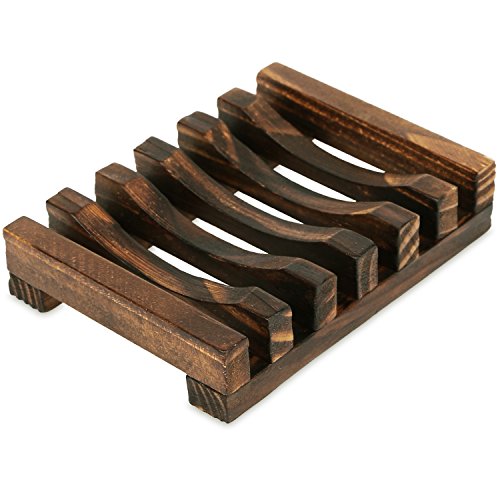
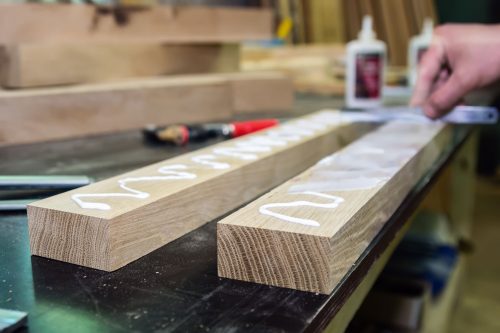
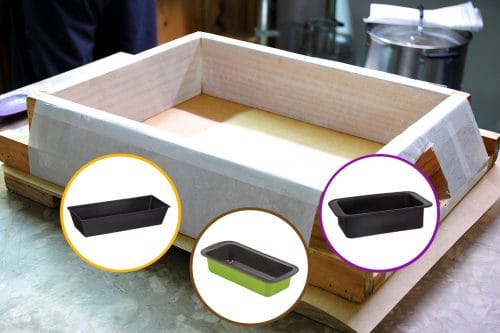
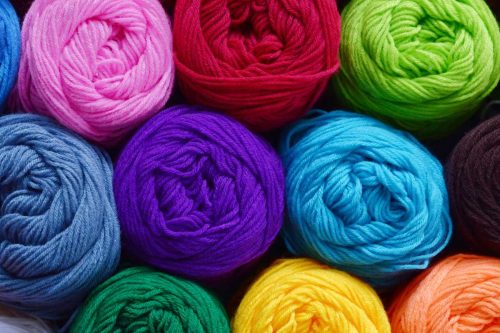
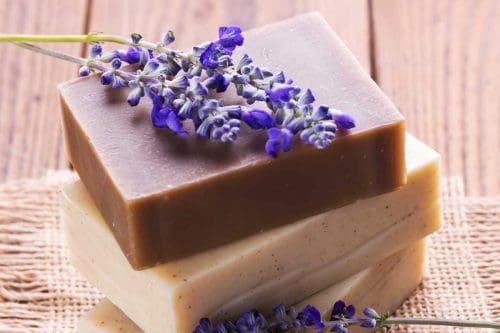
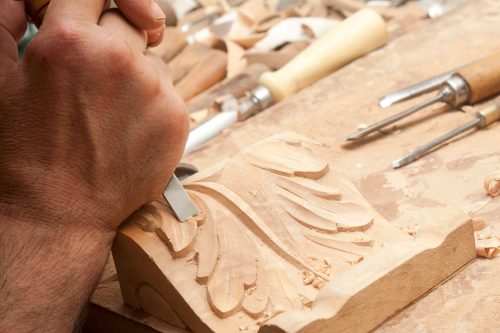
![Read more about the article How Much Sewing Thread Do You Need For A Project? [Here’s How To Tell]](https://craftsbliss.com/wp-content/uploads/2020/12/assorted-and-mutilcolored-spools-of-threads-in-a-table-How-Much-Sewing-Thread-Do-You-Need-For-A-Project-Heres-How-To-Tell-500x333.jpg)